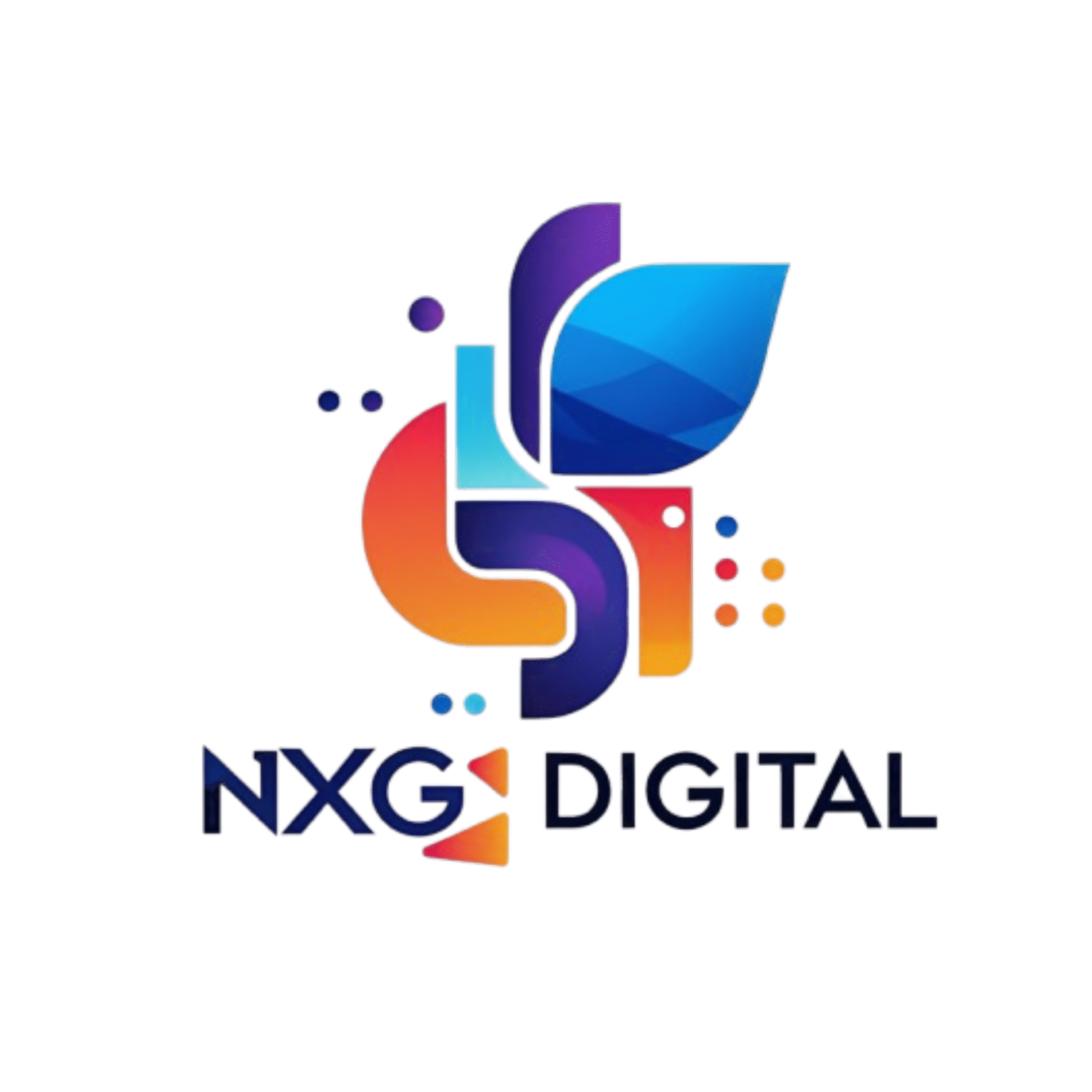Boost your website’s ranking with the Best SEO services in 2025 with the basics, costs, value, and actionable strategies to achieve Google rankings.
Understand SEO services, exploring their mechanics, costs, value, and actionable strategies to achieve first-page Google rankings. Tailored for small businesses, e-commerce platforms, and global enterprises.
Boost Your Website’s Ranking with the Best SEO Services
SEO services are the cornerstone of digital success, empowering businesses worldwide to enhance online visibility, attract targeted organic traffic, and drive sustainable growth. Search Engine Optimization (SEO) ensures your website ranks prominently on search engines like Google, Bing, and beyond, connecting you with customers searching for your products or services.
What Is an SEO Service?
SEO services are strategic processes designed to optimize websites for higher search engine rankings. Below, we break down their purpose, scope, and real-world applications.
What Do SEO Services Do?
SEO services enhance a website’s visibility on search engine results pages (SERPs) by aligning it with algorithms like Google’s 200+ ranking factors. Key components include:
- Keyword Research: Identifying high-intent, low-competition keywords (e.g., “SEO services for small business 2025”) to target relevant audiences.
- On-Page Optimization: Refining meta titles, descriptions, headers, and content for user intent and keyword relevance, boosting click-through rates (CTR) by 20–30% (Backlinko, 2024).
- Technical SEO: Improving site speed (target: under 2 seconds), mobile responsiveness, and crawlability to meet Google’s Core Web Vitals standards.
- Link Building: Securing high-authority backlinks from reputable sites to enhance domain authority (e.g., guest posts on industry blogs).
- Content Strategy: Creating engaging, value-driven content (e.g., blogs, videos, infographics) to answer user queries and reduce bounce rates (industry average: 30–40%).
- Local SEO: Optimizing for location-based searches (e.g., “SEO agency near me”) via Google Business Profile updates.
These efforts drive organic traffic, with 53% of website visits originating from search engines (BrightEdge, 2024).
What Do You Mean by SEO Services?
SEO services encompass professional or agency-led efforts to improve a website’s search engine performance, ensuring it ranks for relevant queries. They combine data analysis, technical expertise, and creative content to attract, engage, and convert visitors. For example, an e-commerce site might use SEO services to rank for “best running shoes 2025,” increasing sales through organic traffic rather than costly ads ($1–$3 per click).
What Is an SEO Example?
A practical SEO example is a local coffee shop optimizing its website to rank for “best coffee shop in [city].” The process involves:
- Researching keywords like “coffee shop [city]” (500–1,000 monthly searches, per Google Keyword Planner).
- Optimizing homepage meta tags (e.g., “Best Coffee in [City] – [Shop Name]”).
- Publishing a blog post, “Top 5 Coffee Drinks to Try in [City],” with local keywords.
- Earning backlinks from local food blogs or directories.
- Ensuring the site loads in under 2 seconds and is mobile-friendly.
This strategy can boost monthly organic traffic by 100–300%, per Ahrefs case studies, driving foot traffic and sales.
How Do You Explain SEO to Dummies?
SEO for dummies: Think of your website as a store in a crowded city. SEO is like putting up bright signs (keywords), organizing your store layout (technical SEO), and getting shout-outs from popular locals (backlinks) to attract more customers (traffic). When someone searches Google for something you offer, SEO ensures your store appears on the main street (first page), not a back alley. Simple tools like Google Search Console (free) or Yoast SEO ($99/year) make it beginner-friendly, guiding you to optimize content and track performance.
How Does SEO Work?
SEO aligns websites with search engine algorithms to improve rankings and visibility. Below, we explore its mechanics and impact.
How Exactly Does SEO Work?
SEO operates through a multi-step process to meet search engine standards:
- Crawling and Indexing: Search engine bots (e.g., Googlebot) scan and store website content in their database.
- Keyword Optimization: Targeting relevant, high-intent keywords (e.g., “SEO services 2025”) based on search volume and competition, using tools like Google Keyword Planner or Semrush ($129/month).
- Content Quality: Creating in-depth, user-focused content (e.g., 2,000-word guides) that answers searcher intent, reducing bounce rates and increasing dwell time (ideal: 2–3 minutes).
- Technical Optimization: Fixing issues like broken links, slow load times (target: under 2 seconds), and non-mobile-friendly designs, ensuring compliance with Google’s 2025 Core Web Vitals.
- Authority Building: Earning backlinks from high-domain-authority sites (e.g., Forbes, industry blogs) to signal trustworthiness, boosting rankings.
- Performance Tracking: Monitoring metrics like organic traffic, CTR, and keyword rankings with Google Analytics (free) to refine strategies.
Google’s algorithm prioritizes relevance, user experience, and authority, rewarding sites with high engagement (e.g., 20–30% CTR for top results).
What Is the Main Purpose of SEO?
The main purpose of SEO is to drive organic traffic to your website by ranking higher on SERPs, increasing brand visibility, and boosting conversions. For example, ranking #1 on Google yields a 28.5% CTR compared to 2.5% for position #10 (Backlinko, 2024). SEO connects businesses with users actively searching for their offerings, delivering cost-effective, long-term results compared to paid ads.
Does SEO Actually Help?
SEO delivers measurable results, with 68% of online experiences starting with a search engine (BrightEdge, 2024). Businesses investing in SEO can achieve 200–400% ROI within 6–12 months by ranking for high-intent keywords, reducing reliance on paid ads ($1–$5 per click). For example, a small retailer optimizing for “organic skincare products” can attract 500–1,000 monthly visitors, increasing sales by 10–20%.
What Does an SEO Job Do?
An SEO job involves strategizing and executing optimization tasks, including:
- Conducting keyword research to identify target terms.
- Optimizing on-page elements (e.g., meta tags, headers).
- Performing technical audits to fix site issues (e.g., slow load times).
- Building backlinks through outreach or content marketing.
- Analyzing performance with tools like Google Analytics or Ahrefs ($99/month).
SEO specialists drive traffic growth (e.g., 50–150% in 6 months) and collaborate with content creators and developers to align strategies with business goals.
Is SEO Really Difficult?
SEO is manageable with dedication but involves a learning curve. Beginners can master basics like keyword research and on-page optimization using tools like Yoast SEO ($99/year). Challenges include:
- Keeping up with algorithm updates (e.g., Google’s 2025 Core Update).
- Competing in high-competition niches (e.g., finance, tech).
- Waiting 3–12 months for results.
Training (e.g., Moz Academy, $595) and consistent effort make SEO accessible, with 80% of results driven by 20% of high-impact tasks (Pareto Principle).
Costs of SEO Services
SEO costs vary based on business size, goals, and competition. Below, we detail pricing and budgeting strategies.
How Much Do SEO Services Typically Cost?
SEO services typically range from $500–$7,500 per month for agencies, $50–$200 per hour for freelancers, or $1,000–$15,000 for one-time projects like site audits or migrations. Small businesses often spend $500–$2,000/month for local SEO, while enterprises invest $5,000–$25,000/month for competitive niches, per Moz and Ahrefs data.
What Is a Good SEO Budget?
A good SEO budget aligns with your goals:
- Small Businesses: $500–$2,000/month for local SEO, content, and basic link building.
- Mid-Sized Businesses: $2,000–$7,500/month for broader keyword targeting and technical fixes.
- Enterprises: $7,500–$25,000/month for high-competition industries (e.g., tech, e-commerce).
Allocate 5–12% of revenue to SEO, ensuring measurable ROI through traffic and conversion tracking.
How Much Should I Pay Someone for SEO?
Pay $50–$200/hour for freelancers or $500–$7,500/month for agencies, based on expertise and scope. For example:
- Local SEO for a restaurant: $500–$1,500/month.
- National campaign for e-commerce: $3,000–$10,000/month.
- Technical SEO audit: $1,000–$5,000 one-time.
Request case studies showing 100–300% traffic growth to ensure value.
How Much Should I Pay for SEO Services?
As noted, $500–$7,500/month is standard for SEO services, depending on:
- Scope: Keyword research, content creation, technical fixes, or link building.
- Competition: High-competition niches (e.g., insurance) demand higher budgets.
- Location: Urban markets (e.g., New York) charge more than rural areas.
Choose providers with transparent reporting and proven results, like 50–200% traffic increases in 6–12 months.
What Is the Cost of SEO?
SEO costs range from $500–$25,000/month, with one-time projects at $1,000–$15,000. DIY SEO with tools like Google Analytics (free) or Semrush ($129/month) is cost-effective but time-intensive. Professional services deliver faster results, with 75% of businesses seeing ROI within 12 months (HubSpot, 2024).
What Is the 80/20 Rule of SEO?
The 80/20 rule of SEO (Pareto Principle) suggests that 20% of efforts—focusing on high-impact tasks like targeting high-intent keywords, optimizing content for user intent, and fixing critical technical issues—drive 80% of results (traffic, rankings, conversions). Prioritize these over minor tweaks like excessive meta tag edits for maximum efficiency.
Is It Worth Paying for SEO Services?
Investing in SEO can yield significant returns. Below, we evaluate its value and potential challenges.
Should I Spend Money on SEO?
Spending on SEO is highly recommended for sustainable growth. Organic search drives 53% of website traffic (BrightEdge, 2024), offering a cost-effective alternative to paid ads ($1–$5 per click). A $1,500/month SEO campaign can yield 200–400% ROI within 6–12 months by increasing organic traffic and conversions.
Should I Pay Someone to Do SEO?
Paying someone for SEO is ideal for businesses lacking time, expertise, or resources. Professionals leverage advanced tools (e.g., Ahrefs, $99/month) and strategies to achieve faster results, often boosting traffic by 100–300% in 6–12 months. DIY SEO suits budget-conscious businesses but requires a steep learning curve and consistent effort.
Is SEO Worth It for Small Business?
SEO is highly worth it for small businesses, as 70% of consumers search locally (Google, 2024). A local retailer optimizing for “organic pet food [city]” can attract 200–500 monthly visitors, increasing sales by 10–20%. Local SEO costs $500–$2,000/month, delivering high ROI for modest budgets.
Is Paid SEO Worth It?
Paid SEO is worth it for accelerated results and expertise. Agencies provide data-driven strategies, reducing trial-and-error. For example, a $2,000/month campaign can double organic traffic in 6 months, compared to slower DIY progress. Choose agencies with transparent metrics and proven case studies.
What Are the Cons of SEO?
Cons of SEO include:
- Time Lag: Results take 3–12 months, unlike instant paid ads.
- Initial Costs: Monthly fees ($500–$7,500) can strain small budgets.
- Algorithm Volatility: Google’s 2025 updates may temporarily disrupt rankings.
- Competition: High-competition niches require sustained investment.
- Learning Curve: DIY SEO demands time to master tools and strategies.
Despite these, SEO’s long-term benefits—sustainable traffic, high ROI—outweigh drawbacks for most businesses.
How to Rank Your Website on the First Page of Google
Securing a first-page Google ranking is critical for visibility and growth. Below, we outline why it matters and how to achieve it.
Why Ranking on Google’s First Page Matters
Ranking on Google’s first page captures 90% of organic clicks, with the top 3 positions earning 54.4% of traffic (Backlinko, 2024). First-page rankings boost brand credibility, increase CTR (20–30%), and drive conversions, making SEO a vital investment in 2025. For example, a top ranking for “best CRM software” can generate thousands of monthly visitors for a tech company.
Key Strategies to Achieve Top Google Rankings
To rank on Google’s first page:
- Keyword Research: Use tools like Semrush ($129/month) or Google Keyword Planner (free) to target long-tail keywords (e.g., “SEO services for e-commerce 2025”) with 500–5,000 monthly searches and low competition.
- High-Quality Content: Publish in-depth, user-focused content (1,500–2,500 words) addressing searcher intent. Include visuals (e.g., infographics) to increase dwell time (2–3 minutes).
- On-Page SEO: Optimize meta titles (50–60 characters), meta descriptions (150–160 characters), headers (H1, H2), and images (compressed with TinyPNG, free).
- Technical SEO: Ensure site speed (under 2 seconds), mobile-friendliness (90% of users search on mobile), and HTTPS security. Fix broken links and redirects with Screaming Frog ($259/year).
- Link Building: Secure 3–5 high-authority backlinks monthly (e.g., guest posts on industry sites with domain authority 50+).
- Local SEO: Optimize Google Business Profile with accurate NAP (Name, Address, Phone) and customer reviews for local searches.
- User Experience: Reduce bounce rates (target: under 40%) with intuitive navigation and engaging content.
- Performance Monitoring: Track rankings, traffic, and conversions with Google Analytics (free) and adjust strategies monthly.
Consistent execution can achieve first-page rankings within 6–12 months, with 70% of optimized sites seeing significant gains (Ahrefs, 2024).
Contact us for the Best SEO Services in the World
Ready to dominate Google’s first page?
Our award-winning SEO agency delivers customized strategies—keyword research, content optimization, technical fixes, and link building—to drive 100–400% traffic growth for clients worldwide. Contact us at [insert agency contact link] for a free consultation and start your journey to top rankings today!
SEO Schedule for You Business
Below is a sample SEO schedule to guide businesses globally:
| Task | Frequency | Tools Needed | Notes |
|---|---|---|---|
| Keyword Research | Monthly | Semrush ($129/month), Google Keyword Planner (free) | Target 5–10 high-intent keywords. |
| Content Creation | Weekly | Grammarly ($12/month), Surfer SEO ($59/month) | Publish 1–2 blogs (1,500–2,500 words). |
| On-Page Optimization | Monthly | Yoast SEO ($99/year), Google Search Console (free) | Update titles, meta, and images. |
| Technical SEO Audit | Quarterly | Screaming Frog ($259/year), Google Analytics (free) | Fix speed, links, and mobile issues. |
| Link Building | Ongoing | Ahrefs ($99/month), email outreach | Secure 3–5 high-authority backlinks. |
| Performance Tracking | Weekly | Google Analytics (free), Semrush ($129/month) | Monitor traffic, CTR, and conversions. |
Note: Adjust based on business size, industry competition, and goals. Partner with an SEO expert for tailored plans.
Benefits of Our SEO Services
The science behind SEO delivers measurable outcomes:
- Visibility: Top rankings increase CTR by 20–30%, driving traffic (Backlinko, 2024).
- Cost Efficiency: Organic traffic saves $1–$5 per click compared to paid ads.
- Credibility: First-page rankings boost user trust, increasing conversions by 10–20%.
- Sustainability: SEO provides long-term traffic, unlike temporary ad campaigns.
- Data-Driven: Analytics tools enable precise strategy refinements, maximizing ROI.
SEO Tips for 2025
- Prioritize User Intent: Target keywords matching searcher needs (e.g., “how to choose SEO services 2025”).
- Optimize for Mobile: Ensure sites load in under 2 seconds on mobile devices (Google Core Web Vitals).
- Create In-Depth Content: Publish 1,500–2,500-word articles with visuals to boost engagement.
- Leverage Local SEO: Update Google Business Profile with reviews and local keywords.
- Stay Updated: Monitor Google’s 2025 algorithm changes via Search Engine Journal or Moz.
- Track Metrics: Use Google Analytics (free) to measure traffic, bounce rates, and conversions weekly.
FAQ
What are SEO services?
SEO services optimize websites to rank higher on Google, driving organic traffic through keyword research, content creation, technical fixes, and link building.
How does SEO work?
SEO aligns websites with search engine algorithms via keyword optimization, quality content, technical improvements, and backlinks, delivering results in 3–12 months.
How much do SEO services cost?
SEO services cost $500–$7,500/month for agencies, $50–$200/hour for freelancers, or $1,000–$15,000 for one-time projects, based on scope and competition.
Is SEO worth it for small businesses?
Yes, SEO is worth it, driving 200–400% ROI for small businesses by attracting local traffic (e.g., 200–500 monthly visitors) at $500–$2,000/month.
How can I rank on Google’s first page?
Rank on Google’s first page by targeting long-tail keywords, creating in-depth content, optimizing technical SEO, and building high-authority backlinks, achieving results in 6–12 months.
Best SEO services in 2025 empowers businesses to unlock their website’s full potential. From keyword research to technical optimization, SEO drives organic traffic, enhances brand credibility, and delivers 200–400% ROI. By implementing strategies like content creation, link building, and mobile optimization, you can secure Google’s first page within 6–12 months. Whether you’re a small business or a global enterprise, investing in SEO services ($500–$7,500/month) ensures sustainable growth in a competitive digital landscape. Contact us for world-class SEO solutions, and share your top SEO tips in the comments to inspire others in 2025!





2 Comments
Riva Collins
It’s no secret that the digital industry is booming. From exciting startups to need ghor
global and brands, companies are reaching out.
Obila Doe
It’s no secret that the digital industry is booming. From exciting startups to need ghor hmiu
global and brands, companies are reaching out.